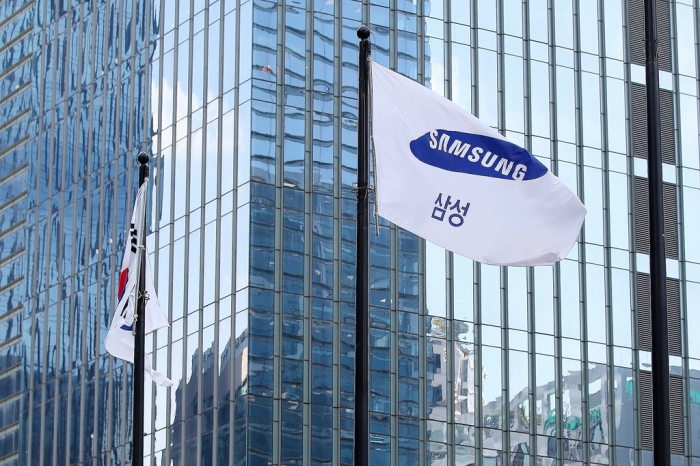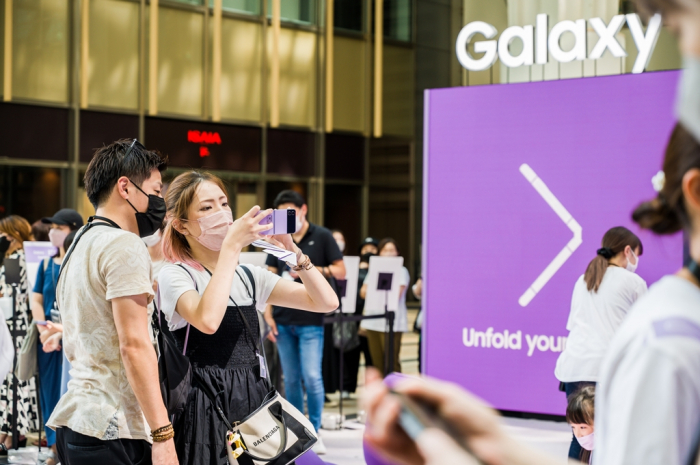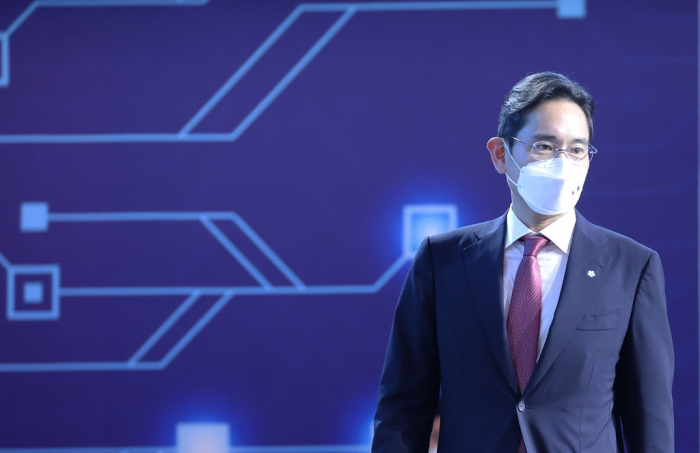Leadership & Management
Samsung tightens belt to gird for worsening economic conditions
The tech giant, however, will continue to invest heavily in promising businesses and seek M&A targets to drive growth, officials say
By Dec 09, 2022 (Gmt+09:00)
3
Min read
Most Read
LG Chem to sell water filter business to Glenwood PE for $692 million


Kyobo Life poised to buy Japan’s SBI Group-owned savings bank


KT&G eyes overseas M&A after rejecting activist fund's offer


StockX in merger talks with Naver’s online reseller Kream


Mirae Asset to be named Korea Post’s core real estate fund operator



Samsung Electronics Co., the world’s largest memory chip and smartphone maker, is drastically cutting costs while maintaining investments in future growth amid growing external uncertainties such as higher interest rates and weakening demand.
In an internal notice to company employees, the South Korean tech giant said on Wednesday its Devicel eXperience, or DX, division, which encompasses the smartphone and home appliance businesses, will now be operated under an emergency management system.
Overseas business trips and expensive global marketing events will be discouraged while related expenses will be cut by half, according to the memo.
Expenditures related to the company’s attendance in CES 2023 and IFA, Europe’s largest electronics exposition, will be significantly slashed and spending on market research firms and consulting agencies to prepare business plans will be limited, it said.
The drastic move comes as companies around the world are bracing for worsening economic conditions, including higher inflation and elevated interest rates. Korean conglomerates also face a weakening local currency, which boosts import prices and other operating expenses.

SLUGGISH SALES TO CONTINUE
“Sluggish sales in TVs and other home appliance products will continue for a while. We don’t expect any meaningful rebound in the near future,” said a Samsung official.
According to financial market research firm FnGuide, the market consensus for Samsung Electronics’ 2023 operating profit is 33.38 trillion won ($25.6 billion), down 29% from this year.
Samsung’s belt-tightening measures come days after its executive reshuffles earlier this week.
In a relatively small-scale executive shakeup on Monday, which affected seven C-suite officials, the company largely retired aged executives to make room for younger leaders in a generational change, which industry watchers said would also cut labor costs.
In the latest executive reshuffle – the first since Executive Chairman Jay Y. Lee took the helm of the country’s largest conglomerate in October – Samsung retained key business chiefs in an effort to tide over the current economic difficulties.
Co-Chief Executive Han Jong-hee will continue to run the combined mobile and consumer electronics unit as well as the visual display business, while Kyung Kye-hyun, another Samsung co-CEO, will remain as head of its DS division, which oversees its semiconductor business.
Just like its peers, Samsung’s mainstay products, including smartphones, TVs and other home appliances, saw declining sales this year.

Its DX division posted 11.1 trillion won in operating profit in the first nine months of the year, down 20.4% from the year-earlier period.
The division’s inventory assets reached 27.1 trillion won at the end of September, an increase of 5.65 trillion won from a year earlier.
Samsung Electronics’ financial costs, including foreign-exchange losses and interest costs, ballooned to 14.27 trillion won in the January-September period, up 137.5% from a year ago.
TO INVEST MORE IN TIMES OF CRISIS
While significantly slashing costs, Samsung said it will largely maintain or expand, if needed, its investment in future growth engines.
“Even in times of crisis, we have to spare no efforts to increase investment in new businesses that can lead us to the future,” said a Samsung executive.
Samsung will continue to spend heavily on research and development projects, talent recruitment and overseas market expansion as well as seek mergers and acquisitions in promising areas, he said.
In the face of growing competition with bigger foundry rival Taiwan Semiconductor Manufacturing Co. (TSMC) and tech giants such as Apple Inc., Samsung last year announced an investment of 171 trillion won for R&D and production facility for its Foundry and System LSI businesses through 2030, adding 38 trillion won to its previous commitment of 133 trillion won announced in April 2019.
Samsung, already the dominant memory chipmaker, aims to become the world’s No. 1 foundry player by 2030.
Write to Ji-Eun Jeong, Sungsu Bae and Jeong-Soo Hwang at jeong@hankyung.com
In-Soo Nam edited this article.
More to Read
-
 Samsung GroupSamsung’s Lee visits UAE nuclear plant project on first trip as chairman
Samsung GroupSamsung’s Lee visits UAE nuclear plant project on first trip as chairmanDec 07, 2022 (Gmt+09:00)
2 Min read -
 Executive reshufflesSamsung Elec names first female president under Chairman Jay Y. Lee
Executive reshufflesSamsung Elec names first female president under Chairman Jay Y. LeeDec 05, 2022 (Gmt+09:00)
4 Min read -
 Korean chipmakersSamsung Foundry: Driving force behind digital transformation
Korean chipmakersSamsung Foundry: Driving force behind digital transformationDec 01, 2022 (Gmt+09:00)
5 Min read -
 Korean chipmakersShell-First: Samsung Foundry’s custom-tailored new operation strategy
Korean chipmakersShell-First: Samsung Foundry’s custom-tailored new operation strategyNov 30, 2022 (Gmt+09:00)
4 Min read -
 Korean chipmakersSamsung sets sights on GAA tech to overtake TSMC in foundry
Korean chipmakersSamsung sets sights on GAA tech to overtake TSMC in foundryNov 29, 2022 (Gmt+09:00)
6 Min read
Comment 0
LOG IN


